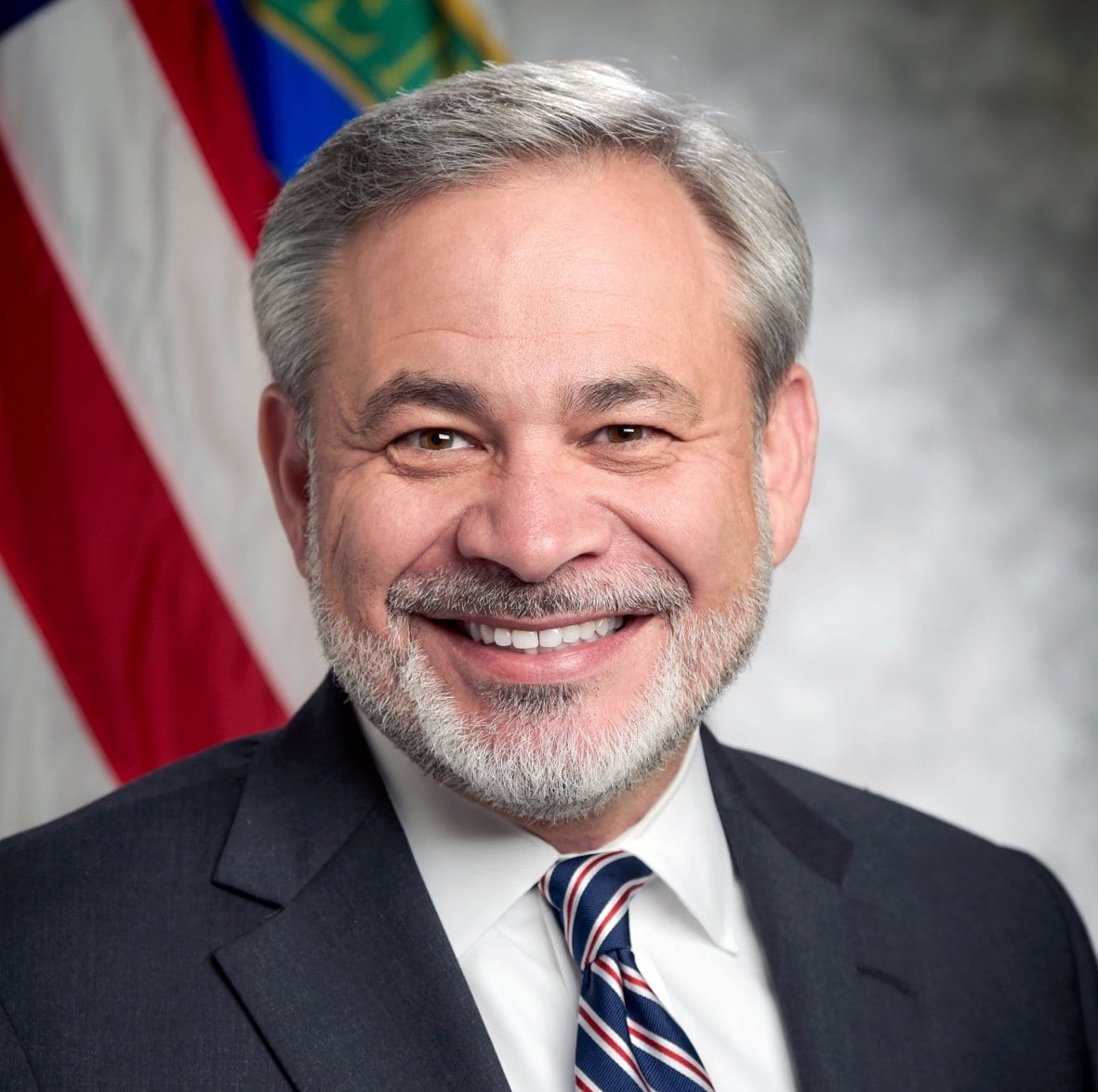
WASHINGTON — Dan Brouillette, who a few years ago was lobbying for the insurance industry and now is on track to join President Donald Trump’s Cabinet as secretary of energy, cruised Thursday morning through a Senate nomination hearing that briefly crossed wires with presidential impeachment proceedings in the House.
With approval from the Senate, Brouillette would be elevated from his current job as deputy energy secretary to the top spot at the Department of Energy.
Brouillette’s boss, Energy Secretary Rick Perry, has drawn scrutiny from the House Intelligence Committee for helping to facilitate a July phone call between Trump and Ukrainian President Volodymyr Zelensky.
During the call, informed current and former U.S. officials have told the House panel, Trump appeared to condition military aid for Ukraine on an investigation of the son of Joe Biden, former vice president and current Democratic presidential hopeful. The younger Biden once served on the board of a Ukrainian energy company.
In the Senate Energy and Natural Resources nomination hearing Thursday, Ranking Member Joe Manchin (D-W.Va.) asked if Brouillette was involved with any conversations Perry had with U.S. and Ukraine officials — and Trump’s personal lawyer, Rudy Giuliani — to set up the July phone call.
“I have not been involved with any of the conversations that are related to the House’s inquiry,” Brouillette said.
Nuclear matters occasionally arose during the hearing, with Brouillette promising Sen. John Hoeven (R-N.D.) to continue the agency’s drive to construct a new production complex that, by 2030, can annually manufacture 80 fissile nuclear-weapon cores in planned facilities at DOE’s Los Alamos National Laboratory in New Mexico and Savannah River Site in South Carolina.
The Energy and Natural Resources Committee had not scheduled a vote on Brouillette’s nomination at deadline Friday for Nuclear Security & Deterrence Monitor. Sen. Lisa Murkowski (R-Alaska), chair of the Committee, suggested an expedited proceeding – saying she hopes for a seamless transfer of leadership when Perry officially resigns on Dec. 1. The Committee subsequently scheduled a business meeting Nov. 19 to consider pending nominations.
On the floor, even a single senator could block a unanimous consent agreement, and Brouillette drew 17 “no” votes when the full chamber voted on his nomination as deputy secretary in 2017.
Brouillette said he was “absolutely committed” to the NNSA’s pit strategy, which was officially announced in 2018. The Energy Department’s semiautonomous National Nuclear Security Administration (NNSA) has acknowledged it will be challenged to hit 80 pits a year by 2030 given the technical and logistical challenges, the relatively tight deadline for meeting them, and the limited funding available.
The planned pits will be for W87-1-style warheads suitable for future intercontinental ballistic missiles. The NNSA requested $710 million or so for pits in fiscal year 2020 but is getting the equivalent of under half that, under a continuing resolution now funding the government. The House also wants to slow pit funding next year, relative to the request.
During Thursday’s hearing, Sen. Martin Heinrich (D-N.M), a strong ally of the Los Alamos and the Sandia national laboratories in his state, did not mention either facility. Before the hearing, Heinrich expressed interest in Brouillette’s involvement with Perry’s Ukraine outreach.
Meanwhile, Sen. Catherine Cortez Masto (D-Nev.) told Brouillette that she wants him, if confirmed, to keep a promise Perry made earlier this year to remove 500 kilograms of weapon-usable plutonium from the Nevada National Security Site by 2026. The agency moved the material there in 2018, on a federal court order to remove the plutonium from South Carolina, even as Nevada was suing to stop the shipment.
Brouillette gave Cortez Masto a “firm commitment” to remove the plutonium by 2026. The material will head to the Los Alamos National Laboratory, which early next decade will start turning it into plutonium pits for future W87-1 warheads.
The Nevada National Security Site is the former Nevada Test Site. There, the National Nuclear Security Administration conducts subcritical plutonium tests that provide data on how plutonium ages, and whether the aging fissile cores of U.S. weapons are still as destructive as designed.
Brouillette had a smooth trip through the Senate, the last time he had to pass muster there. The body confirmed him as deputy secretary on a bipartisan basis: 79-17, with four members, including the then-ailing and now deceased Sen. John McCain (R-Ariz.), not voting.
Only a single Republican voted against Brouillette as deputy secretary on the floor: Sen. Dean Heller (R-Nev.), who lost a re-election bid in the November 2018 midterms. Strong opposition to permanent nuclear-waste disposal in Nevada routinely turns lawmakers from that state into one-issue voters, when it comes to nuclear matters.
Other than his current job, Brouillette’s most recent government service was during the George W. Bush administration. From 2001 to 2003, he was DOE’s assistant secretary for congressional and intergovernmental affairs.
Brouillette left the department in 2003 to become staff director of the House Energy and Commerce Committee, which has jurisdiction over DOE. Brouillette’s time on the Hill lasted just a year, after which he joined Ford Motor Co. as a senior vice president, then became senior vice president at the United Services Automobile Association, where he spent a decade.